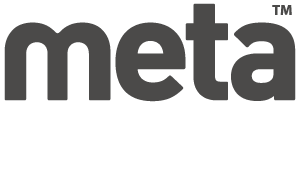As time goes by, more and more scientific research is dedicated to nutrition and fitness – the pillar stones of modern-day health. However, as more and more people – especially fitness trainers and enthusiasts, are starting to read up on some studies, scientific terms have started to be used loosely and with no real knowledge behind them. Due to various fitness programmes, books, social media posts and DVDs, some fitness terms have become so overused and popularized, regardless of whether they are used in the right context. Furthermore, as science digs deeper into fitness, some universally held ’truths’ have been debunked; however, because most people aren’t up to date with the latest scientific scoop on health, these terms continue to be used, even long after they became outdated.
Does this happen by accident, or because people have built entire fitness programmes on these buzzwords, is a million dollar question. The fitness industry is 80bn dollar one, and a lot of it is just pure marketing and cashing in on the words that sound scientific. In the last decade or so, there have been 4 fitness terms that have been either used in a wrong concept or are outright incorrect from a scientific standpoint. We’re going to discuss these terms here, in hopes that we’ll make it easy for someone to know when they’re being lied t in the future, by a fitness ’professional’ who is only after their money. So, let’s begin with the fitness terms that should be forgotten.
1. Diet
Food is one of the things that everyone has an opinion about. It’s only natural because most people in the Western world eat multiple times a day, so it’s expected that everyone has their own theory and experience about what the healthiest diet is. Unfortunately, the word diet has changed over time, from something that simply means ’a way of eating’ or ’eating’ into an elaborate and intricate system of food-restricting and/or calorie-restricting eating regimes that are time-limited. The Whole foods diet, the Atkins diet, Paleo diet, Honey diet, the Lemon diet – these are all systems of eating that focus more on losing fat in a short amount of time, rather than eating according to a healthy, balanced nutritional plan for the rest of your life. A better and healthier approach to any kind of diet would be to develop a nutritional plan that you can stick to indefinitely (or at least until your goals are met) and enjoy it while you’re at it. The term ’diet’ has become connected with the term ’restriction’ in our minds, hence becoming unhealthy, to begin with. Nutrition is something to look forward to, not something you’ll do for a month while suffering, s you can get back to your non-diet diet. It’s time to start looking for a way to eat healthy for the rest of our lives, without giving a name to that sort of behaviour. Only then will we break loose of the diet mentality.
2. Bulking and Cutting
Another favourite and something that muscle-ridden people taking pictures in front of the gym mirrors will swear by, the famous couple: Bulking and Cutting. Unfortunately, bulking and cutting means nothing more than gaining fat and losing fat. The core idea of bulking is that in order to gain lean muscle, we must eat 2 babies and a giraffe daily, so we can give our muscles the nutrition they need to grow. However, a lot of people simply gain fat when ’bulking’, because they simply eat way too much. If you’re aiming to build muscle, you should increase your daily caloric intake 300-500 kcal per day at most. Anything more than that, and your body will store fat because no muscle is able to develop at the rate you can ingest 1500 calories over your daily limit.
Cutting, on the other hand, is the process of getting rid of excess fat once we have built the desired muscle. Without bulking, cutting wouldn’t be necessary. The truth is you can build muscle without gaining fat, simply by eating bigger, but controlled portions. There is no rule that says that in order to gain muscle, you must gain fat as well. It’s just that people find it easier to indulge in massive portions, and then give that behaviour a buzzy fitness name. Trust us, amp up your protein intake, as well as your calorie intake by a small margin, and you will notice results, only you won’t ’bulk’ and won’t need to ’cut’ afterwards.
3. Functional exercise
Functional exercise is another term that has scientific roots and great use in rehabilitation but was destroyed by the fitness industry. Nowadays, everything that makes you balance while doing another exercise is considered functional. In reality, functional exercise can be any movement that helps you perform the everyday movement you have trouble performing – it’s all up to the individual needs and possibilities. So, the next time you see a ’functional’ section of the gym, or a ’functional’ exercise class, RUN for your life – it’s functional.
4. Tone Up!
The fitness industry just doesn’t stop, does it? Repeat after us: there’s no difference in toning up and gaining muscle definition by losing fat and doing strength training! That’s all that ’toning up’ is. When you eat healthily and train your muscles, they will show differently than they would if you were to just exercise or just eat healthily. The combination of healthy eating and different exercises will tone you up, if you will, and not some DVD product that is ’specifically designed’ for toning. Fitness is, in all truthfulness, much less complicated than the gurus would like you to know.


